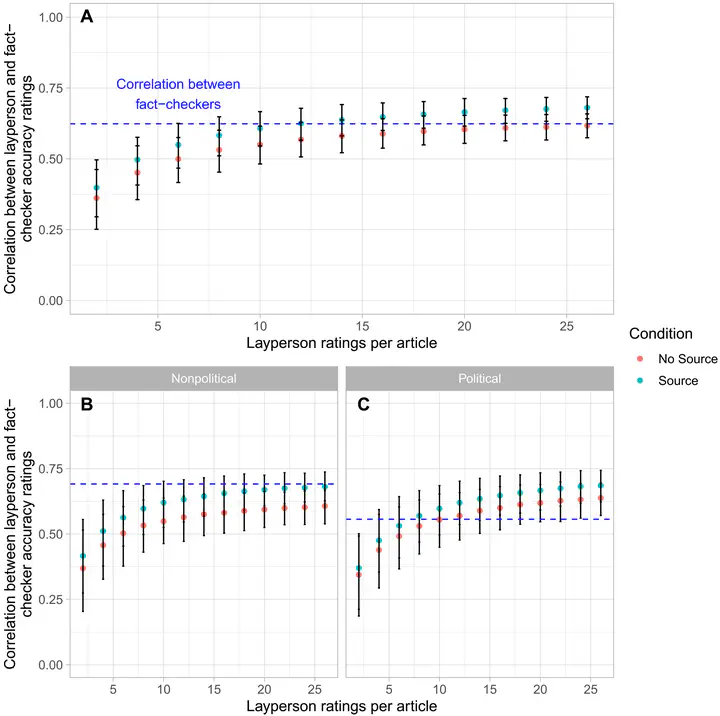
Abstract
Professional fact-checking, a prominent approach to combating misinformation, does not scale easily. Furthermore, some distrust fact-checkers because of alleged liberal bias. We explore a solution to these problems: using politically balanced groups of laypeople to identify misinformation at scale. Examining 207 news articles flagged for fact-checking by Facebook algorithms, we compare accuracy ratings of three professional fact-checkers who researched each article to those of 1128 Americans from Amazon Mechanical Turk who rated each article’s headline and lede. The average ratings of small, politically balanced crowds of laypeople (i) correlate with the average fact-checker ratings as well as the fact-checkers’ ratings correlate with each other and (ii) predict whether the majority of fact-checkers rated a headline as “true” with high accuracy. Furthermore, cognitive reflection, political knowledge, and Democratic Party preference are positively related to agreement with fact-checkers, and identifying each headline’s publisher leads to a small increase in agreement with fact-checkers.